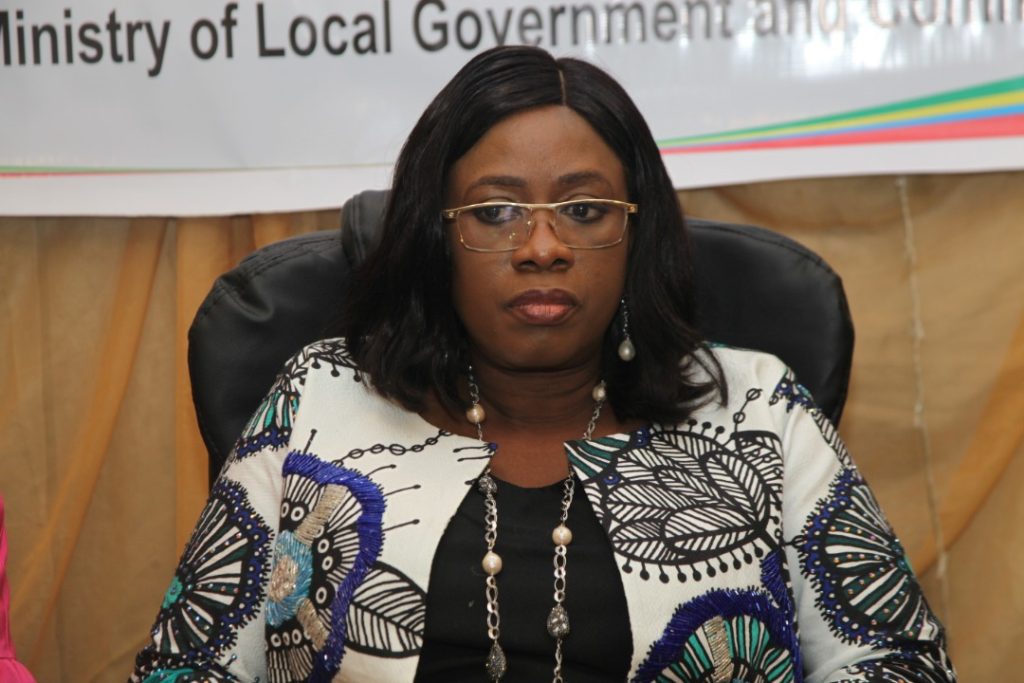The Lagos State Government, through its Ministry of Women Affairs and Poverty Alleviation (WAPA), implemented a laudable initiative tagged the “Ounje Lo Re Awo” program. This outreach program aimed to bolster the nutritional well-being of women at the grassroots level by distributing food items and providing crucial education on healthy dietary practices. The program’s core objective transcended mere sustenance, focusing on empowering women to make informed decisions about their nutrition, ultimately fostering healthier lifestyles and enhanced overall well-being. This proactive approach aligns seamlessly with the broader vision of Governor Babajide Sanwo-Olu’s administration, which prioritizes women’s welfare, healthcare, and social protection as key pillars of societal progress.
The “Ounje Lo Re Awo” program represents a multi-faceted approach to addressing women’s nutritional needs. Beyond the provision of food items, the initiative incorporated a crucial educational component. Beneficiaries received guidance from nutritionists on healthy eating habits, emphasizing the incorporation of fresh produce, adequate hydration, and traditional staples like okra into their diets. This knowledge-sharing aspect ensured that the program’s impact extended beyond immediate sustenance, empowering women to make sustainable dietary changes that promote long-term health and well-being. The program’s holistic design underscores the government’s commitment to not only alleviating immediate food insecurity but also fostering a culture of informed nutritional choices within the community.
The initial phase of the program targeted 250 women selected from four local government areas: Kosofe, Agboyi-Ketu, Ikeja, and Ifako-Ijaiye. These beneficiaries converged at the Isheri Skills Acquisition Centre, a strategic location that underscores the program’s integration with other empowerment initiatives. The distribution encompassed a variety of nutritious food items, including staples like rice and beans, protein sources like eggs and whole chickens, and essential ingredients like curry and fresh vegetables. The emphasis on providing whole chickens rather than portions highlighted the program’s commitment to ensuring beneficiaries felt valued and adequately nourished. This thoughtful approach reflected the government’s recognition of the dignity inherent in providing comprehensive support, going beyond mere subsistence to offer a sense of abundance and care.
Commissioner Bolaji Dada, the driving force behind the Ministry of Women Affairs and Poverty Alleviation, articulated the program’s profound impact, emphasizing its role in restoring dignity, promoting wellness, and empowering women. Her vision for the initiative extended beyond immediate hunger relief, envisioning it as a catalyst for positive change in the lives of the beneficiaries. Dada stressed that the program aimed to equip women with the knowledge and resources to make healthier dietary choices, fostering a sense of agency and control over their own well-being. This empowerment dynamic resonated with the broader goals of the Sanwo-Olu administration, which champions women’s empowerment as a cornerstone of societal development.
The selection of the Isheri Skills Acquisition Centre as the distribution point further emphasized the program’s holistic approach. By linking food provision with skills development, the initiative created a synergy between immediate needs and long-term empowerment. This strategic integration underscored the government’s commitment to addressing poverty not just through handouts, but also through equipping individuals with the tools to become self-sufficient and contribute meaningfully to their communities. The convergence of these two critical aspects of empowerment – nutritional well-being and skills development – created a powerful platform for transformative change in the lives of the beneficiaries.
The “Ounje Lo Re Awo” program represents a significant step forward in addressing food security and promoting healthy living among women in Lagos State. By combining direct food provision with nutrition education and linking it to existing empowerment initiatives, the program offers a holistic and sustainable approach to improving women’s well-being. The initiative’s success serves as a testament to the Lagos State Government’s commitment to empowering its citizens, particularly women, and fostering a healthier, more vibrant community. The program’s long-term impact lies not just in the immediate relief it provides, but in its potential to create a ripple effect of positive change, empowering women to lead healthier, more fulfilling lives and contribute more effectively to their families and communities. The initiative stands as a shining example of how targeted interventions, coupled with a commitment to education and empowerment, can create a meaningful and lasting impact on the lives of those most in need.


